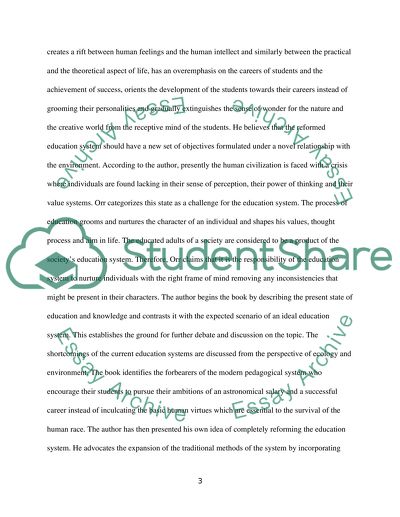Cite this document
(“Book review Earth in Mind by David W Orr 1994 Report/”, n.d.)
Retrieved from https://studentshare.org/geography/1432767-book-review-earth-in-mind-by-david-w-orr
Retrieved from https://studentshare.org/geography/1432767-book-review-earth-in-mind-by-david-w-orr
(Book Review Earth in Mind by David W Orr 1994 Report/)
https://studentshare.org/geography/1432767-book-review-earth-in-mind-by-david-w-orr.
https://studentshare.org/geography/1432767-book-review-earth-in-mind-by-david-w-orr.
“Book Review Earth in Mind by David W Orr 1994 Report/”, n.d. https://studentshare.org/geography/1432767-book-review-earth-in-mind-by-david-w-orr.


